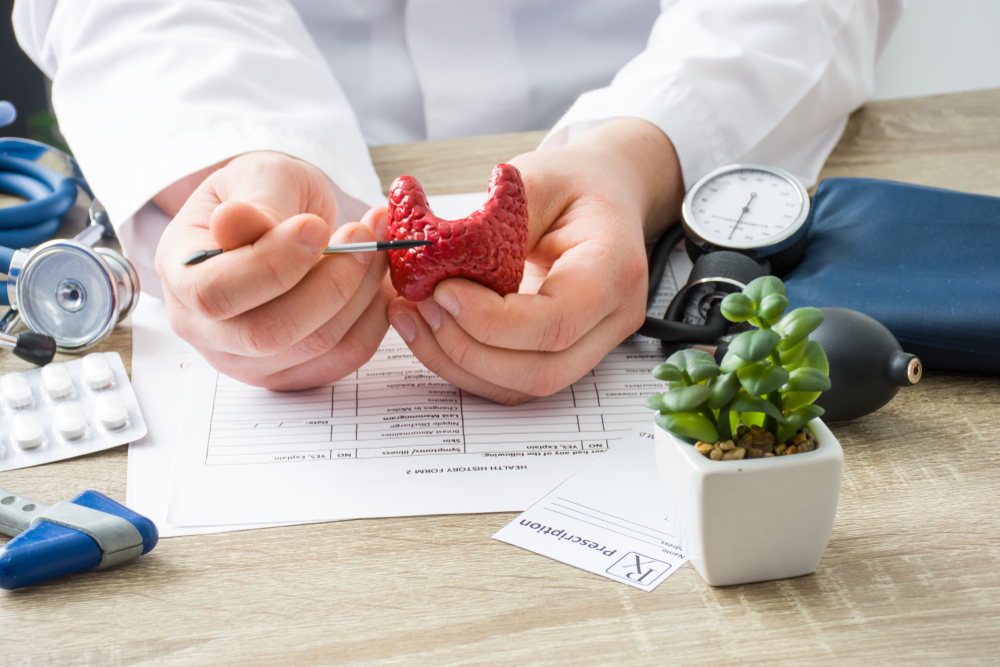Thyroid surgery, known as thyroidectomy, involves the partial or complete removal of the thyroid gland, a vital organ located at the base of the neck resembling a butterfly. This procedure is conducted for various reasons, including the presence of cancerous tumors, nodules, thyroid enlargement, or hyperthyroidism. As you embark on this journey, understanding what to anticipate before and after surgery can significantly alleviate any apprehensions.
What to expect before surgery:
The initial step in your thyroidectomy journey involves a thorough preoperative evaluation, ensuring understanding and preparation.
This evaluation typically comprises several essential components:
- Diagnostic imaging and laboratory tests: To accurately assess the condition of your thyroid gland, your healthcare provider may recommend imaging tests such as MRI, ultrasound, CT scan, or an EKG. Additionally, blood tests will be conducted to evaluate hormone levels, providing crucial insights into your thyroid function.
- Examination of vocal cords: Given the proximity of the thyroid gland to the vocal cords, an examination may be performed to assess their functionality and integrity. This assessment helps mitigate the risk of potential complications affecting vocal cord function post-surgery.
- Pre-surgical precautions: Depending on your medical history and individual circumstances, your healthcare provider may prescribe antibiotics as a preventive measure against potential infections. This precaution is particularly crucial for individuals with compromised immune systems, ensuring a safe surgical outcome.
What to expect during surgery:
The surgical procedure itself involves precision and expertise to ensure optimal outcomes while preserving vital structures and functions.
The extent of thyroid removal varies based on the underlying condition and therapeutic goals:
- Partial Thyroidectomy: In cases where only a portion of the thyroid gland requires removal, the remaining tissue may continue to function normally post-surgery, alleviating concerns regarding hormonal imbalances.
- Total Thyroidectomy: Complete removal of the thyroid gland may be necessary in certain circumstances, such as thyroid cancer or severe hyperthyroidism. Following total thyroidectomy, ongoing hormone replacement therapy is typically required to supplement the hormonal deficiencies.
What to expect after surgery:
Postoperative care plays a pivotal role in facilitating a smooth recovery process and minimizing potential complications.
Here’s what to expect after undergoing thyroid surgery:
- Recovery period: Most patients are discharged within a day following surgery and are advised to rest and recuperate at home for approximately two weeks. During this period, certain activities, including heavy lifting and strenuous neck movements, should be avoided to prevent undue strain and facilitate optimal healing.
- Incision care: Proper wound care is essential to promote healing and minimize the risk of infection. While you can typically resume showering after one day, avoid soaking the incision site for at least a week. Monitor the incision site for any signs of redness, swelling, or discharge, and promptly notify your healthcare provider if any concerns arise.
- Management of symptoms: It’s common to experience mild discomfort or tingling sensations around the incision site post-surgery. However, persistent pain or swelling warrants immediate medical attention. Additionally, symptoms such as tingling in the fingers or around the mouth may indicate calcium deficiency, for which your healthcare provider can prescribe appropriate medications.
- Follow-up care: Regular follow-up appointments are essential to monitor your recovery progress and address any concerns or complications promptly. Be sure to adhere to any postoperative instructions provided by your healthcare provider and contact them promptly if you experience any unusual symptoms or complications during your recovery at home.
Thyroid surgery, while understandably daunting, can be navigated with confidence and preparation. Remember, your Ear, Nose, and Throat specialist is your trusted partner throughout this journey, providing guidance, support, and personalized care every step of the way.
Find an Ear, Nose, and Throat specialist near you to learn more about thyroid surgery.



